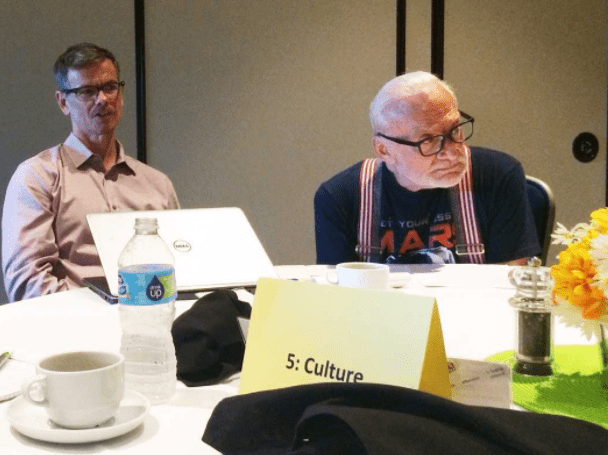Socializing on Mars

Ensuring the survival of humankind, making new extraterrestrial discoveries, and discovering the potential for technological and medical advancements. These are just a few reasons why many scientists believe the colonization of Mars should be the next big step in space exploration.
Although it would be a major breakthrough, sending astronauts into space for a prolonged period of time will pose many unfamiliar obstacles. Besides the obvious technological hurdles that are faced, a future Mars mission will require an in-depth look at different social and psychological issues.
The Buzz Aldrin Space Institute and the Institute for Cross Cultural Management at the Florida Institute of Technology co-hosted a two-day workshop on May 30 to start the process of fully understanding what the journey will entail. The workshop addressed the future of social science research that will be needed to prepare for the permanent colonization of Mars.
Leading scholars from across a wide variety of disciplines came together to develop common characterizations of the psychological, sociological and human performance challenges of the future mission.
UCF Associate Professor of Psychology, Mindy Shoss, Ph.D., Associate Professor of Anthropology, Ty Matejowsky, Ph.D., and Pegasus Professor and Provost Distinguished Research Professor, Peter Hancock, D.Sc., Ph.D., along with Shawn Burke from UCF’s Institute of Simulation and Training, Hancock were in attendance to provide their insight and expertise.

Ty Matejowsky with Buzz Aldrin
“My research concerns how people adapt to changing circumstances and demonstrate resilience in workplace contexts,” Shoss said. “There’s perhaps no more demanding and uncertain environment than Mars. Given the high-stakes nature of the Mars Mission, it is critical to ensure those going to Mars and those supporting this mission are best positioned to be able to adapt.”
According to Shoss, industrial-organizational psychology offers many useful frameworks for thinking about questions that need to be addressed for a successful mission. Some of these questions include which individuals or groups should be selected for the Mars colonization effort, what type of training will these individuals need, and what type of leadership and working culture are needed to garner success against the psychological and performance-related challenges of permanent colonization.
The astronauts will need to continually acquire new skills and modify existing strategies, plans and behaviors in order to deal with new situations that are created throughout the mission. While not to the same level, many of us face similar demands in our everyday lives, Shoss said.
“Mars context reflects extremes of many situations here on Earth,” she explained. “For example, the crew will have to respond quickly and successfully to emergencies that arise and will need to adapt to the interpersonal and cultural demands of living and working with others in confined spaces.”
According to Matejowsky, even small details ranging from the type of food the individuals eat to how they deal with boredom can prove to be crucial when dealing with one of the most important components of a long-term space mission – unity.
“The input of social science is very important because the mission is not fully robotic,” Matejowsky said. “And since this would be an international effort, many differing cultural aspects need to be considered.”
Matejowsky believes the same principle that should be practiced here on Earth needs to be incorporated into the preparation of the feat.
“Broadly speaking, having a sense of mission with people being so polarized and divided can be difficult,” he said. “On the other hand, having an understanding and a purpose that people can be invested in together creates a strong community and that’s what is needed for the future mission.”
People who are advocates for the colonization of Mars, like former astronaut Buzz Aldrin and his son Andrew Aldrin, believe it’s a necessary venture for the longevity of the human race. Through Aldrin’s workshop and other events, experts united in the hope that one day their input will contribute to the next big leap of space exploration.
To learn more about the Buzz Aldrin Space Institute click here.
